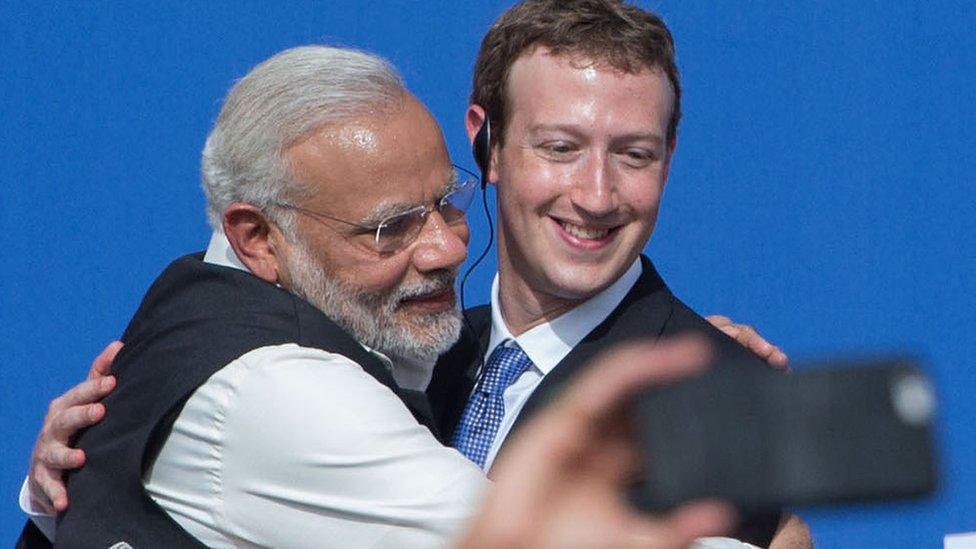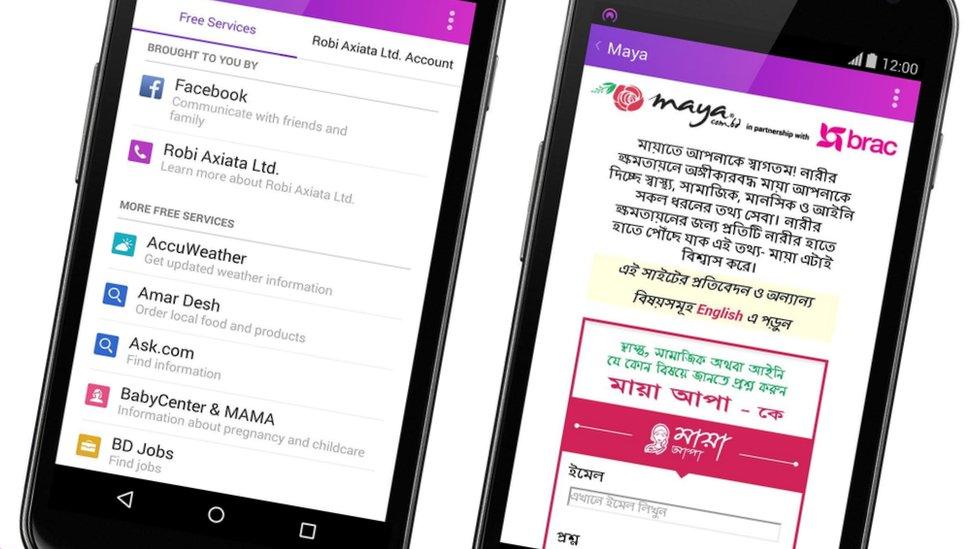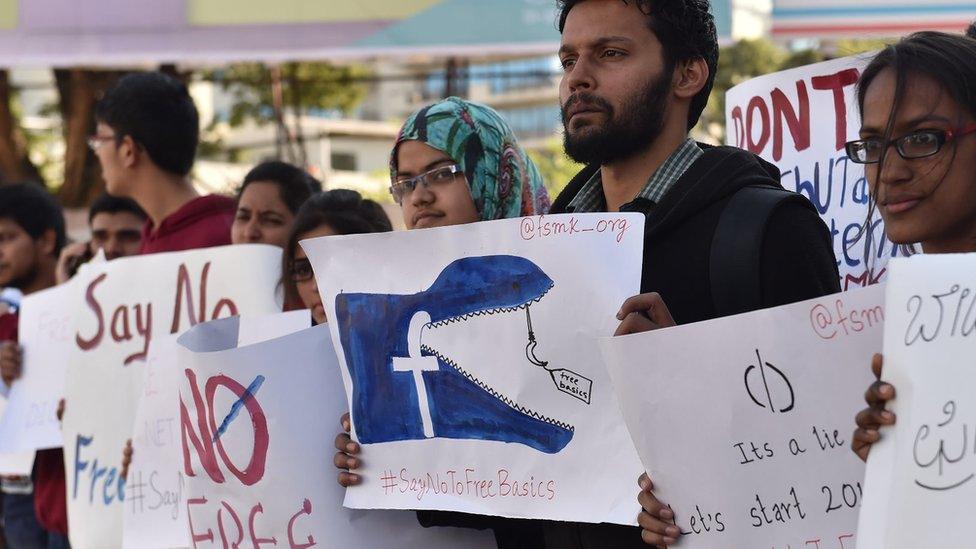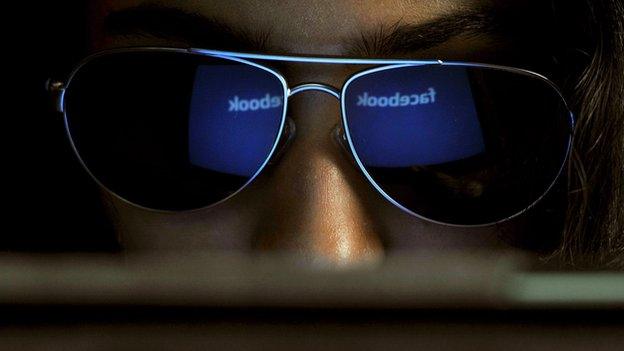India blocks Zuckerberg's free net app
- Published

Indian Prime Minister Narendra Modi and Mark Zuckerberg shared a hug last summer
India's telecoms regulator has blocked Facebook's Free Basics internet service app as part of a ruling in favour of net neutrality.
The scheme offered free access to a limited number of websites.
However, it was opposed by supporters of net neutrality, who argued data providers should not favour some online services over others.
The free content included selected local news and weather forecasts, the BBC, Wikipedia and some health sites.

Facebook's Free Basics service (shown here in Bangladesh) varies from country to country
"No service provider shall offer or charge discriminatory tariffs for data services on the basis of content," ruled the Telecom Regulatory Authority of India.
The body had been investigating whether any online content should be prioritised over others, or offered for free while others were not.
Facebook founder Mark Zuckerberg said he would work to make Free Basics legal.
"While we're disappointed with today's decision," he wrote, external, "I want to personally communicate that we are committed to keep working to break down barriers to connectivity in India and around the world.
"Connecting India is an important goal we won't give up on, because more than a billion people in India don't have access to the internet. We know that connecting them can help lift people out of poverty, create millions of jobs and spread education opportunities."
The World Wide Web Foundation, founded by Sir Tim Berners-Lee, the inventor of the web, welcomed the regulator's decision, external.
"The message is clear: We can't create a two-tier Internet - one for the haves, and one for the have-nots," said programme manager Renata Avila.
"We must connect everyone to the full potential of the open Web.

Many Indians had protested against the service
"We call on companies and the government of India to work with citizens and civil society to explore new approaches to connect everyone as active users, whether through free data allowances, public access schemes or other innovative approaches."
Internet picks
Vikas Pandey, digital producer for the BBC in India, said there had been an intense publicity campaign on both sides of the debate, with Facebook taking out front page advertising in national newspapers to defend the scheme.
"The people who live in cities and are aggressive users of the internet said: 'You can't dictate the terms, give free internet to villagers and then tell them how to use it'," he said.
Facebook founder Mark Zuckerberg has maintained that it is "not sustainable to offer the whole internet for free".
The firm previously said it believed the project - which it launched in 2013 as Internet.org and was offered in 36 countries - had brought more than 19 million people online who would not otherwise have been able to afford access.
- Published23 December 2015
